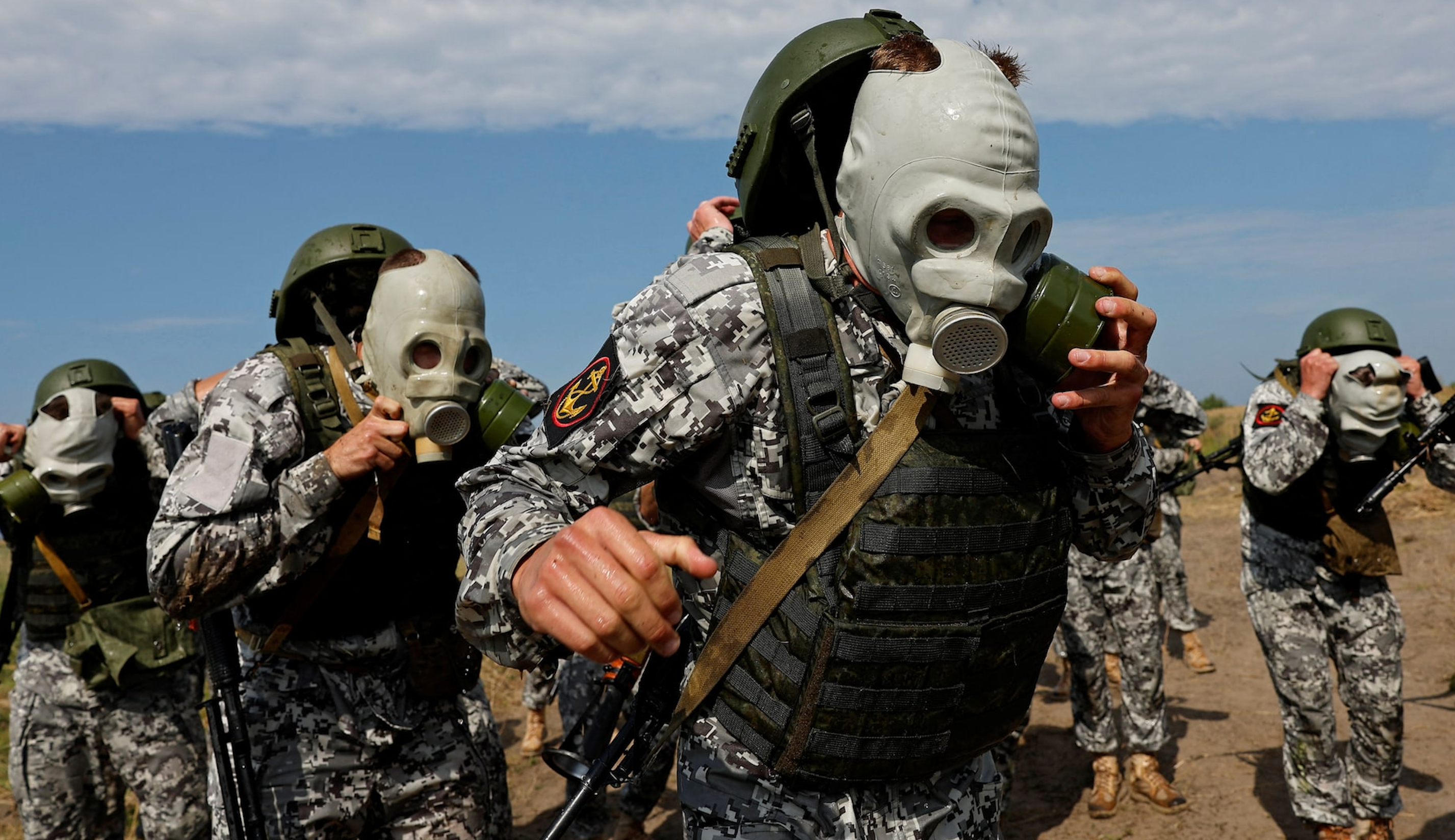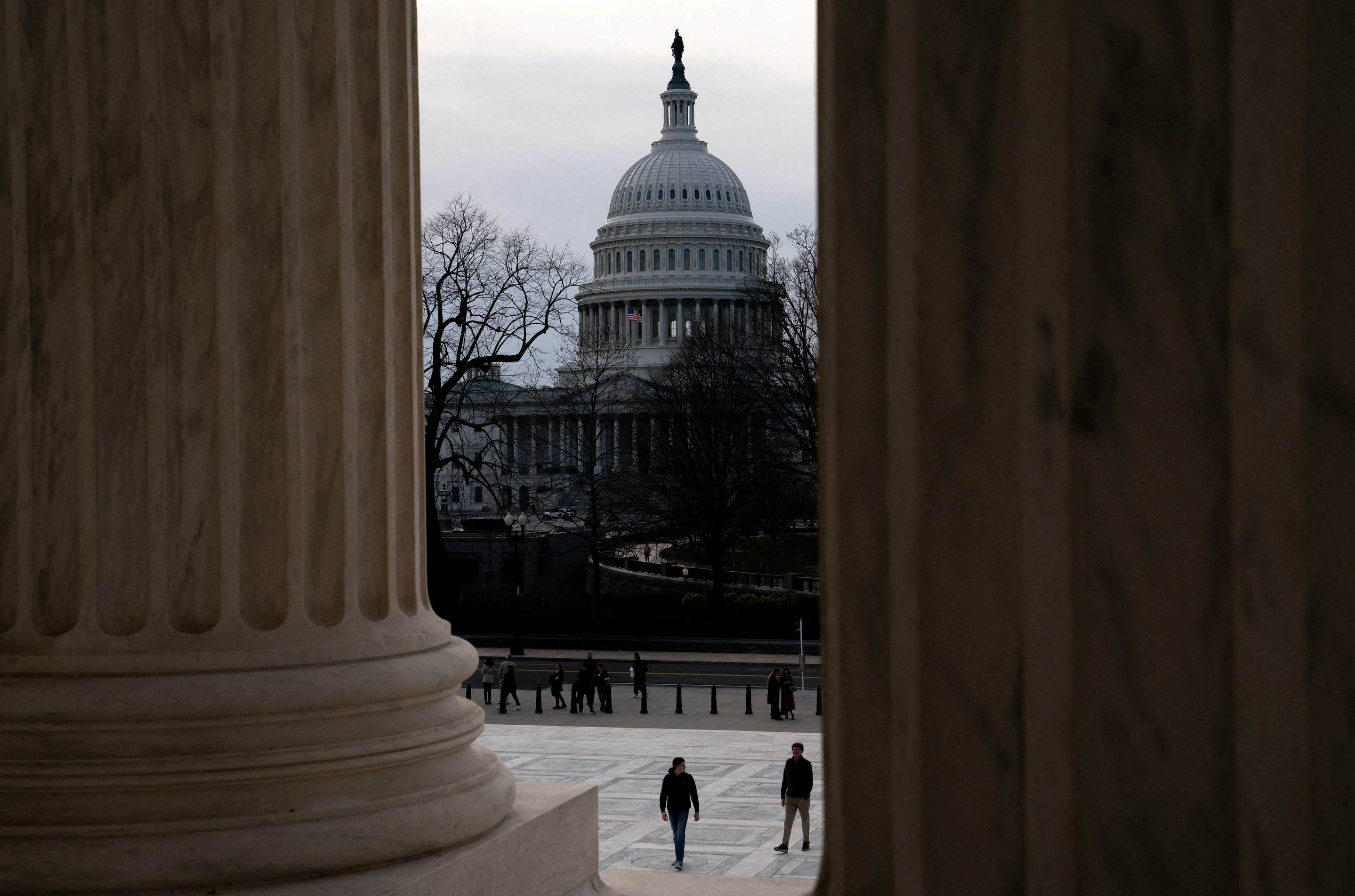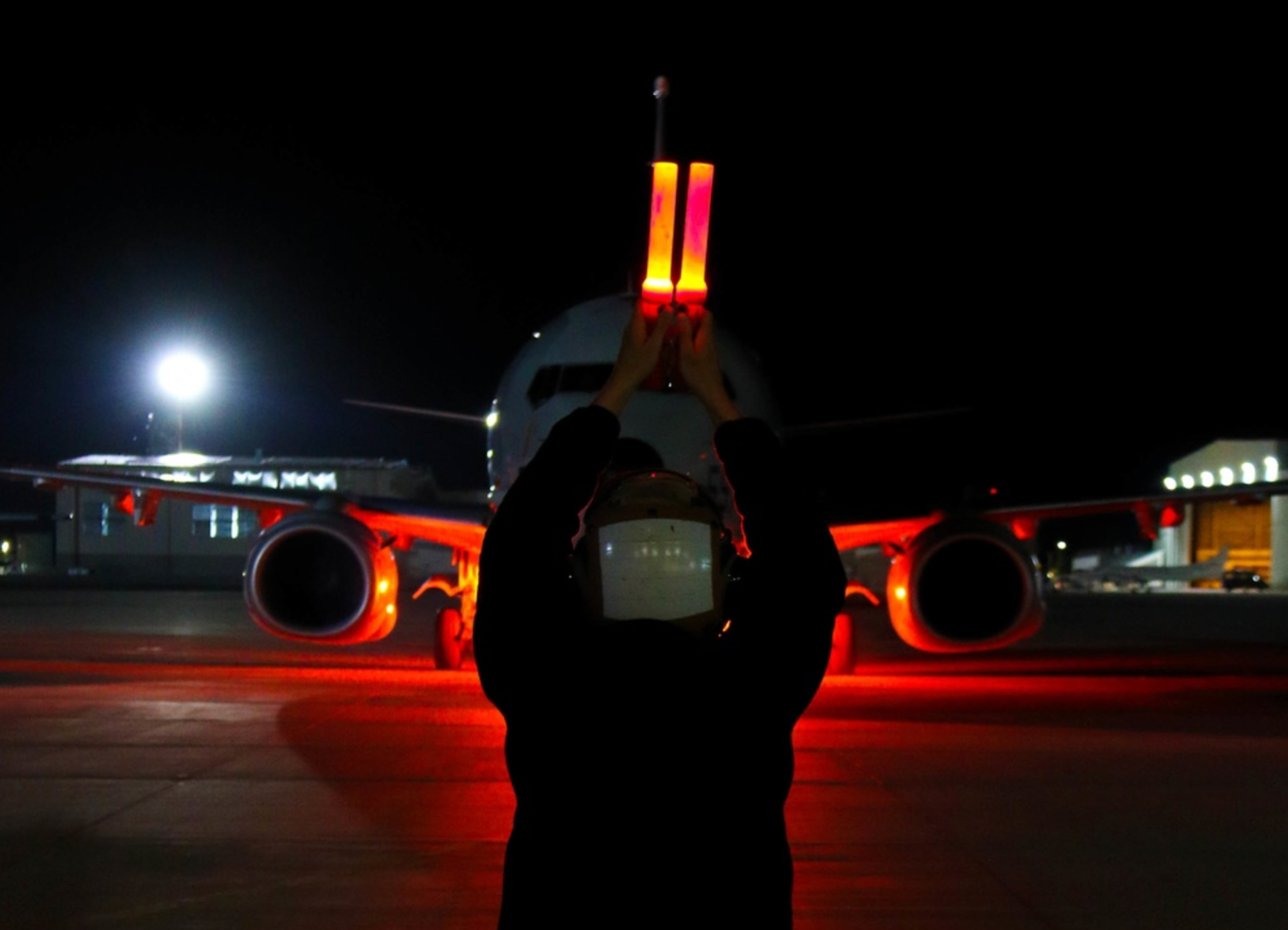
Ukraine says Russia steps up illegal use of tear gas to clear trenches
PHOTO CAPTION: Illustrative photo — Russian marines take part in the Seaborne Assault 2022 international competition as part of the International Army Games, at the Khmelevka firing ground in the Kaliningrad region, Russia August 17, 2022. REUTERS/Vitaly Nevar
By Felix Hoske, Anastasiia Malenko and Sofiia Gatilova
KYIV/DONETSK REGION, Ukraine (Reuters) - The Ukrainian infantryman, call sign "Ray", said he quickly pulled on his gas mask after a Russian drone flying above his trench on the eastern front dropped a tear gas grenade.
"It's like pepper spray, it makes your eyes tear up. It's not lethal, but it disturbs and knocks you out. It makes it very difficult to carry out your duties once you've inhaled it," he told Reuters of the attack he said he experienced in January.
The Ukrainian military says Russia has ramped up its illegal use of riot control agents on the front to try to clear trenches as it begins to make bigger advances in the east more than two years since its full-scale invasion.
Riot control agents such as tear gas are banned on the battlefield by the international Chemical Weapons Convention, which Russia and Ukraine are signatories to.
While civilians can usually escape from tear gas used to break up riots or protests in cities, soldiers stuck in trenches without gas masks must either flee under enemy fire or risk suffocating on the gas.
Colonel Serhii Pakhomov, acting head of the military's atomic, biological and chemical defence forces, said Kyiv had recorded around 900 uses of riot control agents by Russia in the past six months out of over 1,400 since the Feb. 2022 invasion.
Russia mainly used K-51, VOH and RH-VO hand-grenades loaded with CS, CN and other gases, he told Reuters in an interview. Ukraine's military previously alleged that Russian forces also used chloropicrin, which was used as poison gas in World War I.
Russia's embassy in The Netherlands, where the Organisation for the Prohibition of Chemical Weapons (OPCW) is based, said on X in January that allegations about Russia's use of grenades with CN gas use unconfirmed data. Russia's defence ministry did not respond to a request for comment for this article.
Moscow previously accused Ukrainian forces of using chemical weapons, something Kyiv denies. Reuters has not been able to independently verify the use of banned chemical substances by either side.
UKRAINE CONDUCTS GAS MASK DRILLS
Five hundred Ukrainian troops have required medical help after exposure to toxic substances on the battlefield and at least one soldier died after suffocating on tear gas, Pakhomov said.
"In addition to demoralization, the person loses physical capabilities – he can't see, he can't breathe, everything is irritated," he said. "Yes, it is temporary, but it is the very moment the enemy can use to take over this position or another."
The Ukrainian military is distributing gas masks and conducting drills to prepare soldiers to defend their position during such attacks. At one drill near Kharkiv, instructors told Reuters that gas masks help to protect troops from almost all combat poisons but the length of exposure could impact their effectiveness.
Russian forces, which have occupied 18% of Ukrainian territory, are advancing slowly but steadily in the east, after months of deadly fighting.
Volodymyr, 37, a doctor at a medical stabilization point in the Donetsk region, said gas attacks cases have picked up recently as he was seeing an average of two soldiers a week.
They complain about gas attacks of varying characteristics - colorless, blue or green - and with a strong chemical smell.
"The symptoms, it looks like irritation ... it's like tear gas or something like that," he said, unable to identify the exact substance.
Natalia Khovanets, 53, a head nurse at a Ukrainian army medical unit in a forested part of the mostly-occupied region of Luhansk, told Reuters they had treated soldiers who had been hit with tear gas grenades dropped by a Russian drone.
"(The symptoms we saw were) bitterness in the patients' mouths, dizziness... these are mild symptoms. That meant we could manage treating them on our own."
An official with the OPCW, which investigates alleged use of chemicals as weapons, told Reuters it had received no request for an investigation or technical assistance related to the alleged use of banned chemicals in the war.
"However, the use of riot control agents as weapons by Russian troops was widely debated," at the organization's recent meetings, the official said, speaking on condition of anonymity due to the sensitivity of the issue.
The task of documenting each case of alleged toxic chemicals use falls to special groups within the Ukrainian military who collect evidence and contaminated ground samples for field labs before passing them to Ukraine's security services.
Pakhomov said that the 1,400 recorded cases is likely a considerable underestimate because heavy artillery fire and fighting often prevents the groups from visiting trenches, making documentation and accountability harder to achieve.
(Additional reporting by Vitalii Hnidyi near Kharkiv, Anthony Deutsch in Amsterdam; writing by Anastasiia Malenko; editing by Tom Balmforth and Philippa Fletcher)









